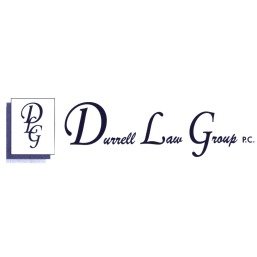Best Tax Increment Financing Lawyers in Anchorage
Share your needs with us, get contacted by law firms.
Free. Takes 2 min.
List of the best lawyers in Anchorage, United States
About Tax Increment Financing Law in Anchorage, United States
Tax Increment Financing (TIF) is a public financing method that is used as a subsidy for redevelopment, infrastructure, and other community-improvement projects. In Anchorage, United States, TIF is employed to stimulate economic development by using future gains in taxes to finance current improvements. Specifically, it allows a city to fund redevelopment projects by borrowing against the anticipated increase in property tax revenues generated by an improved area. TIF can promote economic growth, help revitalize communities, and target specific needs identified by local governments and developers.
Why You May Need a Lawyer
There are several situations in which individuals or businesses may require legal help with Tax Increment Financing in Anchorage:
- Complex Regulations: Navigating the complex web of local, state, and federal regulations governing TIF can be challenging. Legal counsel can help interpret these laws and ensure compliance.
- Contract Negotiations: Lawyers assist in negotiating agreements between developers and municipalities, ensuring favorable terms that align with client's interests.
- Dispute Resolution: Conflicts can arise during TIF projects. Legal experts can mediate disputes and represent parties in court if necessary.
- Due Diligence: Before embarking on a TIF project, conducting thorough due diligence is essential, and lawyers can provide valuable assistance in evaluating potential risks and rewards.
Local Laws Overview
In Anchorage, TIF is governed by a combination of state statutes and local ordinances. Key aspects include:
- State Statutes: The laws set by the state of Alaska provide a framework within which local TIF programs operate.
- Municipal Ordinances: Anchorage’s own rules and guidelines surrounding the establishment and administration of TIF districts within the city.
- Eligibility and Implementation: Specific criteria must be met for areas to qualify as TIF districts, and potential projects must align with community redevelopment objectives.
- Public Input: Public hearings and consultations are often required to engage community stakeholders and ensure transparency in TIF project planning and implementation.
Frequently Asked Questions
1. What is a TIF district?
A TIF district is a designated area within a municipality where property tax revenues are used to finance development projects. The idea is to capture the future tax benefits of increased property values induced by these enhancements to fund the initial improvements.
2. How is the "increment" in TIF calculated?
The "increment" refers to the difference between the baseline property tax revenue from a TIF district (before improvements) and the property tax revenue after the redevelopment has been completed and property values have increased.
3. Who typically initiates TIF projects in Anchorage?
In Anchorage, TIF projects can be initiated by municipal governments or private developers. Both entities can propose projects, but they require approval from the proper governmental authorities.
4. How are TIF funds used?
TIF funds are used for a variety of public improvement projects such as infrastructure enhancements, public spaces, and to finance the redevelopment phases which increase the overall economic appeal of an area.
5. Can TIFs be used for any type of real estate development?
TIFs are usually targeted towards projects that will lead to significant community benefits, such as housing developments, commercial infrastructures, and other revitalization efforts that align with the community development plans.
6. How long can a TIF district exist?
The duration of a TIF district can vary, but they typically last until the debt incurred is paid off, which can be up to 23 years in some cases, though extensions may be possible under certain circumstances.
7. What are the risks associated with TIF?
There are several risks including financial viability, unforeseen increases in project costs, and potential failure to achieve projected redevelopment successes which could lead to a shortfall in tax increments.
8. Is public approval necessary for TIF projects?
Yes, public processes such as hearings and consultations are required to ensure transparency and community support for projects and expenditure of funds through TIF.
9. How are school districts affected by TIF?
Since school districts also rely on property taxes, there can be concerns about funding impacts; however, this is often addressed during the planning stages of TIF projects to mitigate potential negative effects.
10. Can TIF be used in combination with other financial incentives?
Yes, TIF can be part of a broader strategy that includes other economic incentives like grants, loans, or tax abatement programs to stimulate comprehensive redevelopment.
Additional Resources
For further assistance and information regarding TIF in Anchorage, consider reaching out to the following resources:
- Municipality of Anchorage: Provides guidelines and contact points for public engagement regarding local development initiatives.
- Alaska Department of Commerce, Community, and Economic Development: Offers resources on economic development programs and potential funding opportunities in the state.
- Local Legal Aid Societies: These organizations can offer advice and information on navigating legal obligations and rights under TIF law.
- Professional Legal Firms: Seek the expertise of law firms specializing in real estate and public finance law for personalized advice and representation.
Next Steps
If you believe you require legal assistance in navigating Tax Increment Financing in Anchorage, consider the following steps:
- Contact a lawyer specializing in real estate or public finance to discuss your specific needs and circumstances.
- Prepare a detailed outline of your project intentions, budgets, and any preliminary research to help your legal team provide more targeted advice.
- Engage with local government bodies early to understand the specific setup and requirements for TIF districts in Anchorage.
- Attend public meetings or consultations to gain a better understanding of potential roadblocks or community concerns related to your project.
Lawzana helps you find the best lawyers and law firms in Anchorage through a curated and pre-screened list of qualified legal professionals. Our platform offers rankings and detailed profiles of attorneys and law firms, allowing you to compare based on practice areas, including Tax Increment Financing, experience, and client feedback.
Each profile includes a description of the firm's areas of practice, client reviews, team members and partners, year of establishment, spoken languages, office locations, contact information, social media presence, and any published articles or resources. Most firms on our platform speak English and are experienced in both local and international legal matters.
Get a quote from top-rated law firms in Anchorage, United States — quickly, securely, and without unnecessary hassle.
Disclaimer:
The information provided on this page is for general informational purposes only and does not constitute legal advice. While we strive to ensure the accuracy and relevance of the content, legal information may change over time, and interpretations of the law can vary. You should always consult with a qualified legal professional for advice specific to your situation.
We disclaim all liability for actions taken or not taken based on the content of this page. If you believe any information is incorrect or outdated, please contact us, and we will review and update it where appropriate.















